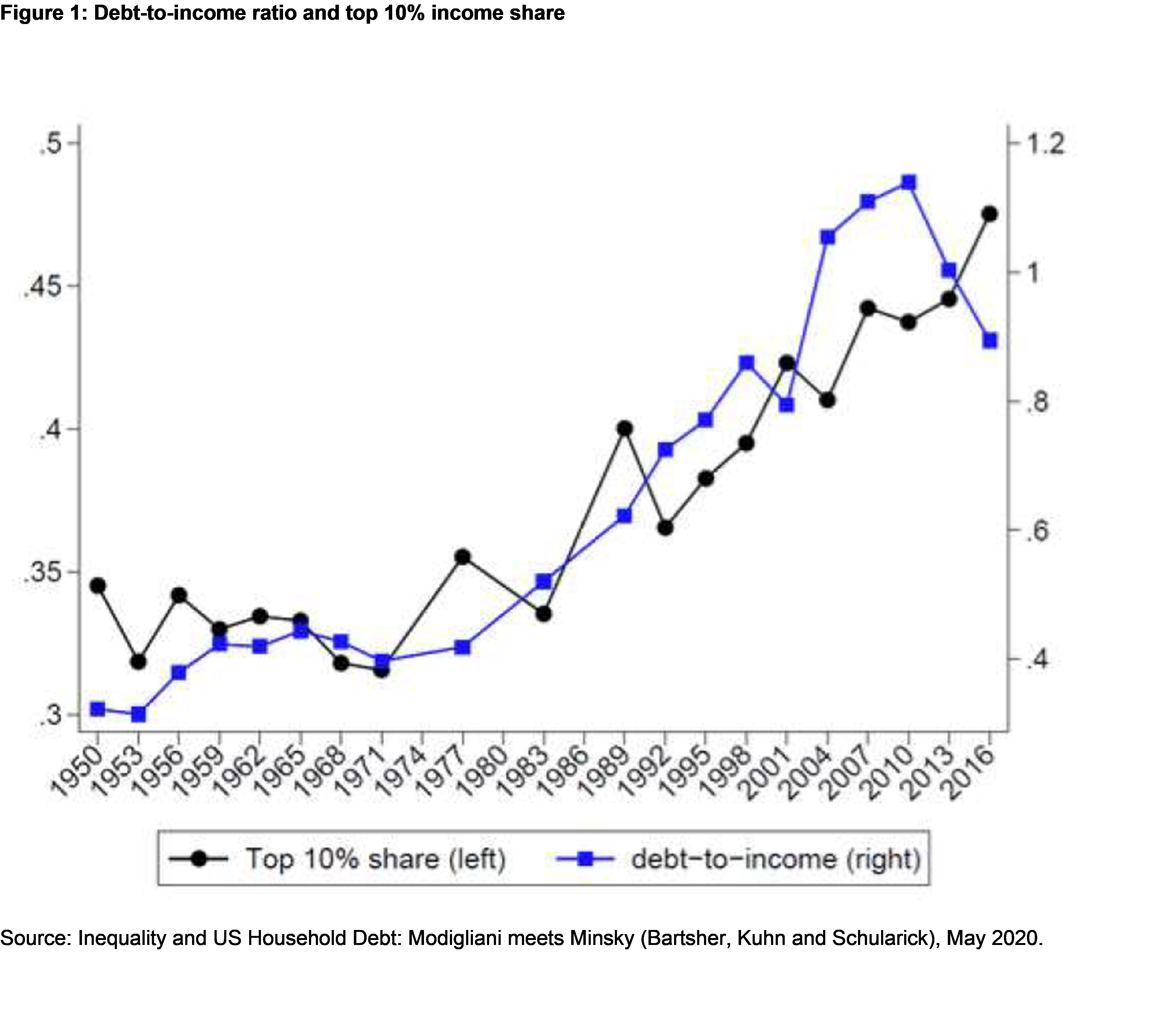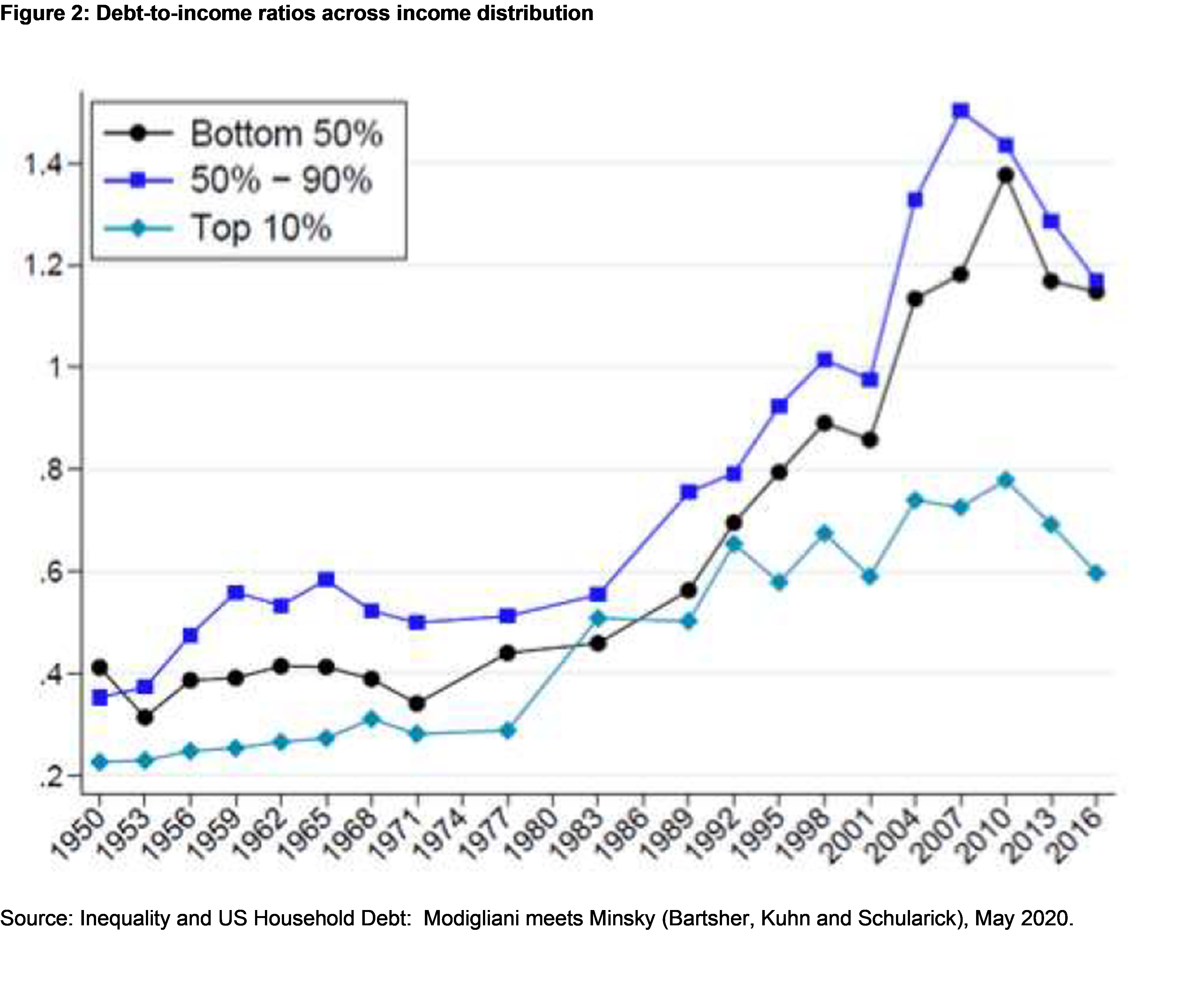‘Middle class’ income inequality: the Achilles' heel of capitalism
The ability of capitalism to raise the living standards of all members of society is probably one of the greatest success stories of the 20th century. Yet the rise in income inequality has seen the ‘middle class’ become increasingly disenchanted with the very system which has raised their material standard of living to ‘all time’ highs. Unless dealt with appropriately, the impacts of income inequality may undermine the growth potential of the developed world for years to come and even the sustainability of capitalism itself.
The middle class under siege
The middle class is an important ‘lynch pin’ of any society and achieving this is the aspiration of most households. Yes, many of us may dream of becoming multi-millionaires or even billionaires, but realistically most of society aspires to be middle class. Accordingly, being middle class is not only the very embodiment of upward social mobility in capitalist societies, but also the foundation from which families aspire to an even better future for their children. Yet despite its importance to society, actually achieving a middle class lifestyle has become more difficult than in the past because of (a) stagnation in nominal and real wages and (b) the strong rise in the prices of housing and other large middle class consumption items. Housing within the major OECD countries is an important case in point, as it comprises the major source of expenditure for middle class households, which have grown more than three times faster than household median income over the last 20-plus years. With stagnant wage growth and an increasing cost base, the middle class has had to fill the aspiration gap by borrowing more, i.e. borrowing has filled the aspiration gap created by wage stagnation.
Income inequality driving middle class debt
The loss of the middle class in terms of incomes, during an extended period of economic growth, has inevitably ended up being a gain for the rich. Defining what is meant by ‘rich’ is debatable, but it will be assumed to represent the top 10% of income earners. Figure 1 below highlights how, in the US, the growth in income share of the rich has been highly correlated to the growth in the household debt-to-income ratio.

Is this just a coincidence? Figure 2 below suggests not, with the highest growth in debt-to-income being associated with lower rather than higher income households.

These trends post-1980 highlight the linkage between the relative loss of income share for the middle class and the increase in middle class borrowing. It is in this context that it is useful to note the rapid pickup in debt from 2000-2008. While many academics focus on the impact on house prices and growth in debt associated with the housing boom from 2000-2008, the actual trends have been in place since the early 1980s. The rapid growth in house prices from 2000-2008, and the associated increase in borrowings as middle class households tried to keep up, was simply part of a much longer-term dynamic.
Middle class inequality depressing economic growth
This increase in middle class borrowing should be a concern due to its impacts on longer-term growth rates. There are several channels through which this can occur, with the first being directly via consumption. Much attention is focused on how much an economy can produce, which is ultimately a function of the amount of capital and labour and how productively these inputs can be combined to create output, i.e. productivity. The productive capacity of an economy to grow requires an increase in one or more of these factors. However, referring to the productive capacity of an economy is only one side of the equation. It is one thing to refer to how much an economy can produce and quite another to refer to how much an economy is producing. To consider how much an economy is producing requires consideration of the demand side of the equation. It is when considering the demand side of the equation that inequality and the increase in middle class debt levels become increasingly relevant. An increase in income inequality, by requiring the middle class to borrow more to sustain an aspirational lifestyle, will ultimately depress demand as the higher debt levels, in conjunction with ongoing wage stagnation, need to be repaid over time.
The second channel is via the impact of a disenchanted middle class on the social fabric. Critically, the presence of a strong and prosperous middle class supports healthy economies and societies. Indeed, one could go so far as to say that the bedrock of sustainable capitalism, and even democracy, is the existence of inclusive growth encompassing the middle class. As was stated before, the middle class is the lynch pin to society and capitalism. To the extent that the middle class feels the current socio-economic system is unfair, they may turn to forms of nationalism, isolationism, populism and protectionism. This lack of a feeling of inclusion in economic growth highlights the distinction between actual prosperity based upon growing income and income shares and the illusion of prosperity based upon higher debt levels. It is therefore not a coincidence that a shrinking and increasingly disillusioned middle class has also seen voters in many developed countries turning towards anti-establishment and protectionist/anti-globalisation policies. It is this increasing distrust towards global integration and public institutions which can also adversely impact the growth of an economy.
There is ultimately no such thing as the perfect socio-economic system. Indeed, inequality is an issue which all economic systems need to address in one form or another. The benefit of capitalism is that society is often prepared to accept such inequality provided (a) ‘everyone’ feels they are benefitting from growth and (b) there is the expectation of a high degree of income mobility supporting social aspirations. The more recent increase in middle class inequality is therefore potentially the most dangerous to the acceptance of capitalism, as it involves the disenchantment of the cornerstone of any society. Unless governments take suitable steps to address such income inequality, economic growth may be seriously undermined. The impact may in turn be the creation of a negative feedback loop which may undermine the social acceptance of capitalism and the institutions it has created. Fortunately, governments have the tools to deal with this rising inequality via such mechanisms as the taxation and transfer system. The more important issue is whether there is the political will to address the underlying issues or low interest rates will simply be used as a means of covering over the cracks.
Not already a Livewire member?
Sign up today to get free access to investment ideas and strategies from Australia’s leading investors.
1 topic

